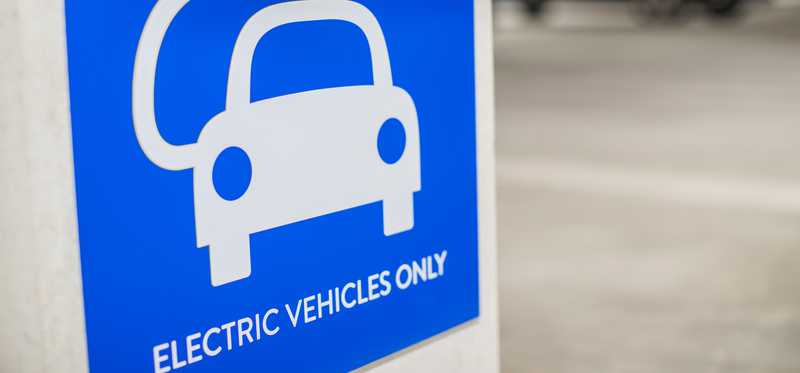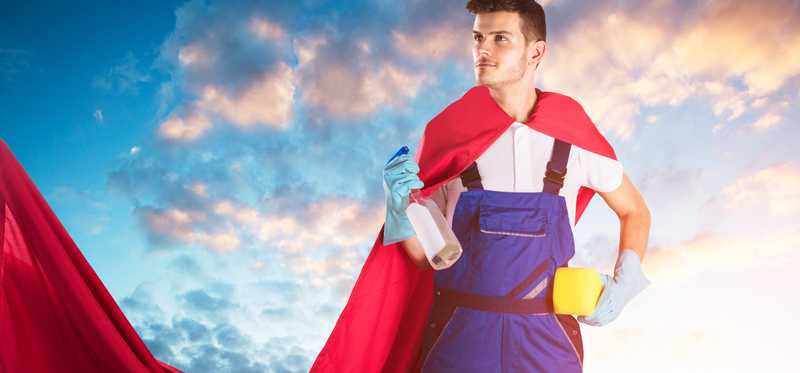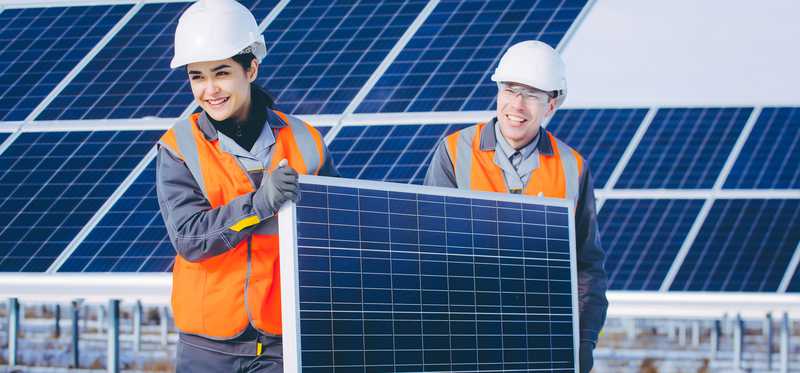10 Companies That Are Trying to Save the World

10 Companies That Are Trying to Save the World
Every little bit helps
Saving the world is a pretty broad concept, but that doesn't mean you can't find companies that are actually trying to achieve just such a goal. Often, however, the companies don't even realize that they are doing it -- they are just trying to do the right thing and make money along the way for their stockholders. Such worldly do-gooders can actually be found in just about every industry, if you look hard enough... and if you're willing to think through the connection between a good company and how its actions are impacting the world we live in.
You can find a lot of these names at the top of socially conscious investing lists and environmental, social, and governance (ESG) focused funds. That said, you might still be surprised by some of the companies here, but that confusion will clear up once you understand the bigger story behind each company. What they do and how they are working to save the world varies greatly from company to company, but here's a list of 10 companies that are, sometimes literally, trying to save the world today.
Previous
Next

1. The vehicle future
It's almost impossible to conjure up a vision of an electric vehicle without the names Elon Musk and Tesla (Nasdaq: TSLA) popping into your head. Although people have very strong, and divergent, opinions of CEO Musk and his startup electric car maker, there's no denying that they have helped to shape the future of the automobile industry -- for the cleaner. Meanwhile, it appears that Tesla is hoping to help push the envelope in the heavy truck market, too.
Saving the world takes many forms, and helping to ensure that there's a reduction in the use of carbon-based fuels is a big step in the right environmental direction. Tesla is at the forefront of this effort. It also appears to be at a pivotal point in its relatively short history as a public company: It turned a profit in the second half of 2018. If it can keep that up, as many industry watchers appear to expect, the years of hype surrounding the company may prove to be well founded.
ALSO READ: Beyond Tesla: Here's What's Coming in Electric Vehicles
Previous
Next

2. Fixing other people's mistakes
Clean Harbors (NYSE: CLH) isn't a proactive company when it comes to saving the world, it's reactive. But that's exactly what you'd expect from this company, which makes most of its money literally cleaning up the environmental disasters that humans create. It's a unique specialty that, sadly, keeps Clean Harbors busy: The company's revenue has more than tripled over the past 10 years. With robust free cash flow, it has been returning value to shareholders via stock buybacks, trimming its share count by 8% or so over the past five years.
As much as it is nice to see companies get ahead of their environmental impact, mistakes happen. And it's nice to know that a company like Clean Harbors, with ample experience behind it, is there to help fix the mess -- and make some money for investors along the way.
Previous
Next

3. A clean energy future built on a clean energy past
Broadly speaking, Brookfield Renewable Power (NYSE: BEP) provides investors with a globally diversified portfolio of clean energy assets. Those assets generate cash, which gets returned to investors via the partnership's robust 6.4% distribution yield. Cash flow is secured with long-term contracts. It's a pretty reliable business, with the partnership expecting long-term dividend growth to be in the mid to high single digits, backed by contractual rate hikes, capital investment in its assets, and construction and acquisition activity.
What's really interesting here, however, is the underlying business on which all of this is being built. Roughly 75% of Brookfield Renewable Power's cash flow comes from hydroelectric assets. That's one of the oldest and most reliable sources of clean energy in the world. While it's hard to find new investments on this side of the business, it provides a solid foundation for the partnership's expansion plans in solar (about 5% of cash flow) and wind (20%). With the world's energy needs expected to keep growing, Brookfield Renewable Power looks like it is build, from the ground up, to succeed.
Previous
Next

4. Making big bets
There are so many technology companies that actively look to be seen as leading on social issues, it's hard to keep track. But if you had to pick one tech giant that's trying to save the world, Alphabet (Nasdaq: GOOG) is a good option. Start with the iconic "don't be evil" clause in its employee handbook. Although that's been replaced with a more tame "do the right thing," there's a clear bias here. And saving the world isn't far behind...
What's most interesting, however, is that Alphabet makes use of its wildly popular and profitable tech services (think Google and YouTube) to help fund longshot ideas. Although many (perhaps most) of the ideas will never work out, they are the exact types of leading edge bets that could, someday, help save the world. Autonomous autos, now accepted as a given for the future, was once a long-shot idea not too long ago. But that's just one of many things that Alphabet has up its sleeve to help change the world for the better over the long term. If you are looking for an agent of change, keep a close eye on Alphabet.
Previous
Next

5. Is this change for the better or worse?
The shares of CVS Health (NYSE: CVS) have been brutalized by investors and are now down around 50% from the highs reached in mid-2015. That's being driven by a massive corporate transition, along with some smaller decisions (like choosing to stop selling cigarettes), that have investors worried about the future here. Those concerns aren't unfounded, since CVS is taking a unique approach in the U.S. healthcare space. But the goal is what's important here, as the company is looking to make the U.S. healthcare system work better for its customers.
Over the past few years CVS, a retail pharmacy, has purchased a pharmacy benefits manager and a healthcare insurance company. It's also rolling out clinics in its stores. The goal is to vertically integrate so that it can help customers manage their healthcare needs from their homes to the doctor to the hospital and then back home again. It hopes this will reduce costs for everyone involved and make the experience better along the way. Investors aren't convinced CVS can pull this off right now, but it's worth watching to see if the company is really building a better mouse trap here.
Previous
Next

6. Don't let the bad press fool you
The headlines haven't been kind to Johnson & Johnson (NYSE: JNJ) lately, as its talcum powder faces ongoing scrutiny over cancer concerns. That bad news, which hails from its consumer products division (roughly 17% of first quarter revenue), is a black eye at a company that has a long history of helping the world be a healthier place. Although the business has shifted over the years, today the diversified healthcare giant makes most of its money from drugs (about half of revenue) and medical devices (roughly 33%). These are two areas driven by innovation in an effort to help people live healthier lives.
But what's most interesting about Johnson & Johnson, other than 56 years worth of consecutive dividend increases, is that it touches so many aspects of the healthcare market. It truly provides investors with a one-stock option for getting exposure to a huge swath of the healthcare sector. And from a company that has an over 100-year history of navigating an industry that is increasingly important as baby boomers the world over age. A company like Johnson & Johnson is going to face occasional headwinds (like the talcum powder issue right now and slowing revenue growth in the drug division), but it isn't going to stop working hard to make the world a better place -- it can't because its business depends on innovation.
Previous
Next

7. Helping companies be better
Ecolab (NYSE: ECL) is kind of an odd duck. You've probably never heard of it, either, because its primary customers are other companies. But the whole point of the business is, basically, to make the world a better place. About 37% of revenue is tied to keeping food safe, 23% comes from ensuring industrial concerns are responsible with water, roughly 17% from what management calls healthy environments, and the rest is derived from energy services. The industrial conglomerate has its fingers in so many different pies it's actually hard to get too specific, lest you miss the forest for the trees -- these industry designations are actually kind of rough when you dig into the company's operations.
The big picture, however, is that Ecolab's entire business is about finding ways to make the world a better place. That includes things as mundane as providing cleaning supplies to a restaurant all the way up to assisting with water treatment at refining plants... And a whole lot in between. While Ecolab believes it is the largest player in a fragmented space, it estimates that it has just an 11% market share within the niches it serves today. So there's a lot more room for Ecolab to expand as it looks to help even more companies treat the world in a positive way.
Previous
Next

8. Changing as the world changes
This one is really a pair of companies that few would think of as saving the world: Royal Dutch Shell (NYSE: RDS-B) and Total (NYSE: TOT). Yes, these are two of the world's largest integrated oil companies, which may turn some people off. However, step back and rethink that. Energy is vital for economic advancement and the oil and natural gas these two companies produce is a necessary evil if the world hopes to keep lifting more and more people out of poverty. These two carbon fuels will remain important for a long time to come, as well, since the transition to cleaner energy sources is really a multi-decade shift.
But that's where things gets interesting here because Shell and Total are both investing in carbon-free alternative today. To be fair, this is being done out of self interest, as the managements at both companies realize that the world is changing gears. However, if you want to own companies that have made life better the world over, and that are looking to keep doing so even after their current businesses are obsolete, you should dig in at these two energy giants. Recent investments include everything from electric vehicle charging stations to solar power, and even the acquisition of an electric utility by Total. Yes, oil is dirty. But we can't live without it for now even as we prepare for a world driven by clean energy.
Previous
Next

9. Money matters...
There's no way to sugar coat it, as the famous "Money Song" from the musical Cabaret explains repeatedly: money makes the world go round. And while you could easily try to find a bank in the finance space, PayPal (Nasdaq: PYPL) might be a bit more interesting when you think about saving the world. This company started life by helping sellers on auction sites get paid by buyers. Eventually it was bought by eBay (Nasdaq: EBAY) and turned into a veritable money machine. It was eventually spun off as its own entity so it could focus more on growth.
At this point, however, an entire generation of consumers around the world knows and trusts the PayPal name. That's going to be important as it reaches into new spaces, including peer to peer payments (Venmo) and credit cards. What's most interesting, however, is that PayPal has been able to sustain a fast growing business (it increased active accounts by31% in 2018, with nearly 10% more transactions per account) by helping make the average person's financial life a little easier. Coming at finance from a different angle, and with a business that transcends country borders, PayPal is increasingly helping the world become a better place for anyone who uses money -- not just those with enough money to interest a big bank.
Previous
Next

10. Happiness can make a difference
Closing out this list is Walt Disney (NYSE: DIS), the iconic owner of Mickey Mouse, Star Wars, ESPN, and Marvel. Perhaps you've heard of some of those media icons, which only scratches the surface at this entertainment giant. In fact, it just closed on its purchase of Twenty-First Century Fox, adding even more household names to the fold (such as the Simpsons). But Disney doesn't just produce media content, it has more of a vertically integrated business because it owns the world's best known amusement parks and even a cruise line. It seeds these business, along with a strong licensing operation, with its highly desirable media properties to draw customers.
Although there's a big shift taking place in the way consumers interact with content and the companies that create it, Disney's collection of brands is second to none. It is highly likely to survive whatever changes take place over time. And while Disney is clearly trying to make money, it's doing so by trying to make people's lives a little bit happier along the way. Try watching a Mickey Mouse cartoon and not smiling... If walking around with a smile on your face doesn't make the world a better place, what will?
Suzanne Frey, an executive at Alphabet, is a member of The Motley Fool’s board of directors. Reuben Gregg Brewer has no position in any of the stocks mentioned. The Motley Fool owns shares of and recommends Alphabet (A shares), Alphabet (C shares), PayPal Holdings, Tesla, and Walt Disney. The Motley Fool recommends CVS Health, eBay, and Ecolab. The Motley Fool has a disclosure policy.
Previous
Next
Invest Smarter with The Motley Fool
Join Over Half a Million Premium Members Receiving…
- New Stock Picks Each Month
- Detailed Analysis of Companies
- Model Portfolios
- Live Streaming During Market Hours
- And Much More
READ MORE
HOW THE MOTLEY FOOL CAN HELP YOU
-
Premium Investing Guidance
Market beating stocks from our award-winning service
-
The Daily Upside Newsletter
Investment news and high-quality insights delivered straight to your inbox
-
Get Started Investing
You can do it. Successful investing in just a few steps
-
Win at Retirement
Secrets and strategies for the post-work life you want.
-
Find a Broker
Find the right brokerage account for you.
-
Listen to our Podcasts
Hear our experts take on stocks, the market, and how to invest.
Premium Investing Services
Invest better with The Motley Fool. Get stock recommendations, portfolio guidance, and more from The Motley Fool's premium services.